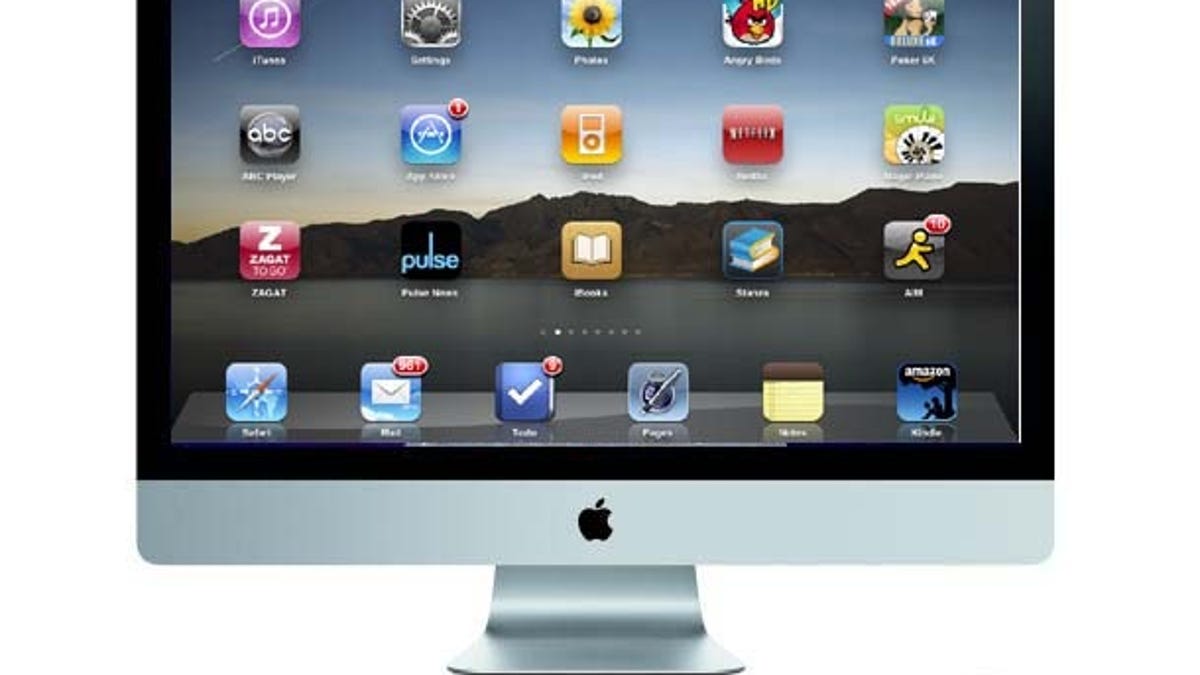Five ways iOS could make its way into Macs
Whether iOS is ready to take over OS X in the long run, there are some very good reasons why it could find its way into your Mac.

Will iPhones, iPads, and other iOS devices usurp the venerable Mac, as some fear? Will the more versatile, powerful and universally compatible Mac prevail? Why must we fight, people? Maybe we can have it both ways.
We've wondered when (and how) Apple's iOS would evolve to challenge OS X. An absence of Mac focus at this year's WWDC has had Mac users panicking slightly.
In fact, it seems highly likely that Apple's iOS and OS X are bound to merge in some fascinating and (hopefully) useful ways.
How so? Well, let us brainstorm for you. We can think of at least five. Realistically, there will probably be a period of about 5 to 10 years where iOS and OS X devices will grow closer and closer together, sharing features, until one evolutionary OS/system pops out in the end. My bet's on "OS 11." Maybe that's what Steve Jobs purportedly was e-mailing the other night regarding the future of Macs.
As a superior quick-start OS. OK, we've mocked quick-start OS environments on Windows computers--chances are you don't even know what we're talking about, because most people don't even know they're there--largely because they don't boot all that quickly themselves, their selection of applications is always limited, and they don't sync up well with Windows later on. Rather than boot up your iMac, wouldn't it be nice to press a button and quickly launch iOS apps--of which there are thousands--to do a quick task or two (or even watch a movie)? Even better, what if iOS launched quickly when you started up a Mac, allowing you to get to work while the rest of OS X booted up in the background?
For touch-screen Macs to come. Apple has avoided touch interfaces on any OS X Mac, probably because Apple doesn't see any logic to making the mouse-oriented OS X environment touch-based. We don't blame the company for the apprehension: our experience with Windows 7 touch devices has been mixed at best. Instead, it would make a lot of sense for iMacs and MacBooks to be able to launch a touch-optimized iOS mode that would use the already multiouch-ready iPad/iPhone software to its advantage. iOS on a Mac could also result in more-advanced apps, in the same way that iPad versions of iPhone apps have already demonstrated.
An App Store. Finding and installing applications on most standard-OS computers is a process of Web surfing, using a trusted download site, or going out and buying a disc. The App Store introduced a far more easy way to do it, with the additional wonderful wrinkle of being able to redownload deleted applications. A Mac App Store would be a lot of fun, and the best gateway to get there might be through a Mac-oriented version of iOS. In the meantime, at least, there are thousands of apps that could be downloaded for low costs. Plus, it would be nice to be able to share purchased universal apps among Macs, iPhones, and iPads. Plus, Mac users who might be interested in some iPhone/iPad games could buy and play them, too. Awkward moment: it would be an instant competitor to Steam.
Connecting to TVs. Remember Front Row, that feature on Macs that blows up the video/music interface to be TV-friendly? The advantage of iOS is, with its large icons, simple interface and quick-loading apps, it seems like an ideal way to interact with a Mac from a distance. If it's built into future Mac Minis and other Macs, then any Mac could easily be enabled to be a TV-friendly box. Maybe, just maybe, the next Apple TV isn't a product but a platform to include on all Macs.
To go greener. iOS has already proven to be less energy-intensive than standard Mac OS X; iPads running ARM processors can attain battery lives of up to 12 hours. On a MacBook, iOS environments could be used for "battery extending" computing modes. On iMacs, running in iOS could be seen as a more energy-friendly alternative to a full OS.
Thanks to CNET's Josh Goldman, David Carnoy, and John Falcone for the brainstorming. Feel free to add your own in the comments.

